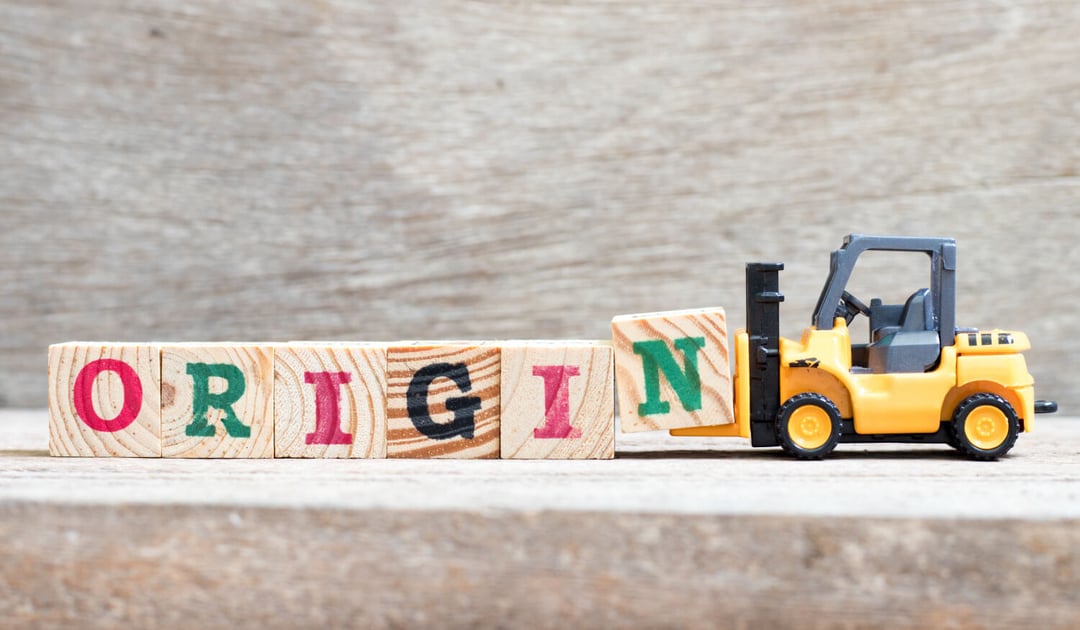
Carb Day is a major event in the Month of May as part of the leadup to the Indy 500. It traces its name to Carburetion Day - which referred to the last day race teams could tune their carburetors in conditions similar to the race itself. The thing is, cars racing in the Indy 500 haven't used carburetors since 1963 - and Carb Day is more of a pre-race party these days anyway. Yet the name remains. That got us thinking, freight and logistics has a few terms originating a long time ago as well that have stuck in every day usage today - even though their meanings may have evolved a bit...
Demurrage is a familiar term for those involved in freight and logistics, as it shows up on people's bills. It refers to a penalty or charge for exceeding free time allowed for loading or unloading at a pier or terminal. Demurrage can also be a charge for undue detention of transportation equipment or carriers in port while loading or unloading. Demurrage as a term dates to the 1600s and the Old French demorage, which means to "to stay, delay, retard." The "mora" included within, relates to moratorium (a pause or delay). It did originate with vessel chartering, so it's generally kept the same meaning over time.
Another heavily used term in freight and logistics is dray or drayage. Drayage describes the movement of a container or trailer to or from the railroad intermodal terminal to or from the customer's facility for loading or unloading. In other words, it's the - short distance - link between transportation modes. It's a term that's evolved over time, originating with dray - which referred to a sideless horse-drawn cart - a term that goes all the way back to the 14th century. The first use of drayage traces to the late 1700s, referring to a similar task of a short distance transfer. But horses left the equation when trucks came around, so nowadays a dray refers to a chassis truck that carries out the freight movement.
Lading comes at the tail end of a BoL or Bill of Lading, something shippers and carriers deal with daily. It traces to the 15th century, initially referring to the act of putting goods onto a boat - as in lading equaled loading. Lading now commonly refers to the goods themselves - or the load. The Bill of Lading is a key document these days for any shipment issued by a carrier both to acknowledge receipt of cargo and to serve as a contract for delivery of goods. While it started over water, BoLs are now commonplace for any freight mode - carrying goods internationally or even domestically.
A lumper in freight is a person hired to help unload a container or trailer who is not the driver. The term traces to 1785. In Great Britain, it referred to a dock worker who helped unload fish. While in Australia - where lumper may have originated - it was anyone engaged in loading and unloading ships' cargo. Why lumper? Some say lump references the lumps of cargo they move. Nowadays, lumpers are not limited to ports, as they may perform their tasks at warehouses, distribution centers, or anywhere else cargo must be loaded or unloaded.
A still commonly used abbreviation for ocean carriers is SSL - which stands for steamship lines. The only problem is, the vast majority - as in just about all - of ocean freighters stopped using steam power many years ago - sometime after World War II. Currently, cargo ships traversing the world's oceans use diesel-powered engines. Some who are especially interested in accuracy nowadays still use SSL as the carrier abbreviation, but they've changed steam to sea, making them sea shipping lines.
Tare weight refers to the weight of a container, vehicle and/or the material used for packing - exclusive of its contents. It's also called unladen weight - as in the weight without the load. Tare weight is an important measure to know when it comes to packing containers and to compare to gross weight. Tare comes from French origins sometime in the 15th century and originally referred to waste or deficiency of goods. Somewhere along the way when it got into English, it became used for its current definition.
Hopefully we've clarified the origins of these popular logistics terms. If you're not interested in learning the freight and logistics lingo yourself, you can rest assured, we know it and know how to use these logistics terms in practice. Drop us a line and we'll follow up in plain language to help you with all your freight and logistics needs.
Learn more about the industry - and what we do at InTek - in our Learning Center. Or you can start with a few of the links below:
